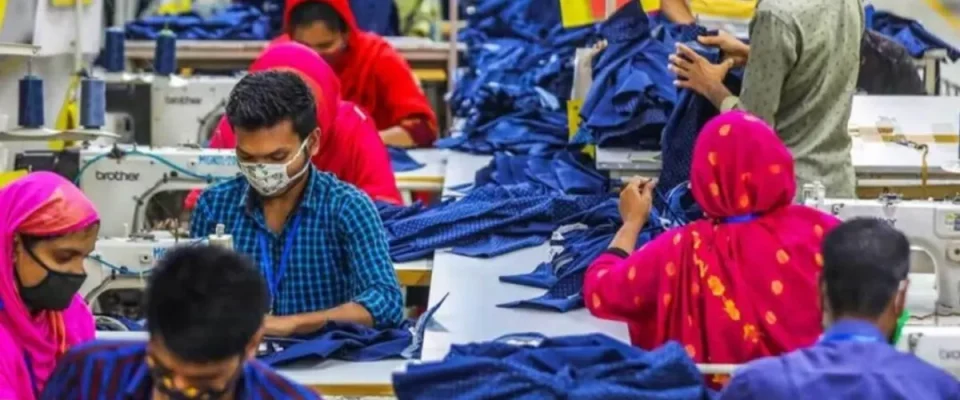Not long after introducing tariffs on South Korea and Japan, US President Donald Trump announced a new set of tariffs on 12 other countries, set to start on 1 August.
Trump conveyed the details of the tariffs in formal letters addressed to the leaders of the nations. Among them, he imposed a 35% tariff on garment imports from Bangladesh, one of the largest garment exporters to the US. With Bangladesh facing higher trade barriers, Indian textile companies are suddenly in the spotlight. This is in anticipation that lower tariffs on Indian exports could lead to better prospects for these companies. Here are 4 Indian textile stocks that stand to gain.
#1 Gokaldas Exports
First on the list is Gokaldas Exports. The company is a leading apparel manufacturer with over four decades of industry experience. The company specialises in producing a wide range of garments, including outerwear, activewear, and fashion wear for all seasons. It has a reputation for producing high-quality garments for some of the world’s top brands. With over 20 state-of-the-art manufacturing units and the ability to produce 36 million (m) pieces annually, Gokaldas has the scale and efficiency global retailers look for. Today, it serves more than 50 brands across multiple countries.
The company has operations in India, Kenya, and Ethiopia, and marketing offices in the UAE and the US. 83% of its revenue in FY24 came from exports. Starting 1 August, the US has slapped a 35% tariff on imports from Bangladesh, one of its biggest clothing suppliers. This move could significantly disrupt Bangladesh’s competitiveness, forcing US retailers and brands to seek alternative sourcing hubs. With its strong compliance track record, diversified manufacturing base, and long-standing relationships with global brands, Gokaldas may attract a part of the order flow that may shift away from Bangladesh.
#2 KPR Mills
Next on the list is KPR Mills. The company is one of India’s largest vertically integrated apparel manufacturers. The company operates across the entire value chain-from spinning yarn and producing knitted fabric to manufacturing ready-made garments and even generating wind power. KPR exports to over 60 countries, with major markets including the UK, China, Australia, and the US. It has 6 advanced spinning mills with an annual capacity of 110,000 MT of yarn, four garment units producing 177 m pieces a year, as well as fabric processing and printing infrastructure. This vertical integration gives KPR an edge in the market. It allows the company to respond swiftly to changing global demand and shifting supply chains, making it a choice for global brands looking to diversify away from Bangladesh.
#3 Vardhman Textiles
Next on the list is Vardhman Textiles. The company has grown into a global conglomerate with a presence in 75 countries. It specialises in yarn, fabric, acrylic fibre, and garments, ranking among India’s top three woven fabric manufacturers. Vardhman stands out for its expertise in speciality and dyed yarns, along with a wide variety of fabrics catering to both top and bottom wear. Its product depth-combined with its strong global presence-puts the company in a solid position to benefit from the tariff imposed on garment imports from Bangladesh. The company’s established relationships with retailers in the US, Europe, and Asia provide a strong foundation for expanding its market share. The company is planning to set up a greenfield steel plant in Punjab, with a capacity to produce 5 lakh MT of billets annually. The project, estimated at Rs 20 billion (bn), will be funded through a mix of internal accruals and debt, and is expected to go live by FY30.
#4 Arvind
Last on the list is Arvind. It’s a leading textile manufacturer in India, known for its fabric production and apparel brands. It’s among the largest denim manufacturers in the world. It also manufactures a range of cotton shirting, denim, knits, and bottom weight (Khakis) fabrics, jeans, and shirts. The company also has a significant presence in the retail sector, with brands like Flying Machine and Arrow. It owns and operates 9 manufacturing facilities in Gujarat, Karnataka, and Maharashtra. About half of Arvind’s revenue comes from exports to the US, UK, and the EU. With the US imposing a 35% tariff on garment imports from Bangladesh, Arvind stands to benefit.
News Courtesy : Equitymaster



